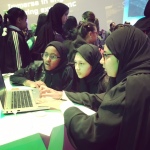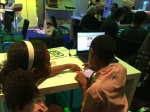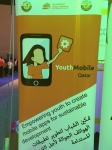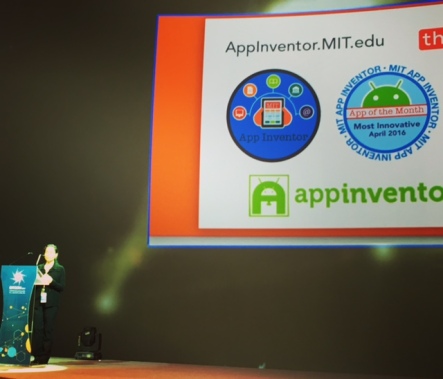Stay up to date with the latest App Inventor News
AppInventor.org was recently designated one of the Best Websites for Teaching and Learning, by the American Association of School Libraries (AASL). The award was announced at the American Library Association’s annual conference (
June 26-June 30, 2017, 10 am – 3 pm
University of San Francisco
High School and Middle School Teachers, we are offering a free professional development workshop this summer, led by Master Teacher Tom Clifford of Carmel High School along with Professors David Wolber (appinventor.org) and Alark Joshi of USF, who run USF’s Democratize Computing Lab (democratizecomputing.org)
The Workshop will focus on programming with App Inventor along with computer science fundamentals. App Inventor is a visual blocks language that is highly accessible to beginners and fun– you get to build apps for phones and tablets! If you are interested in bringing coding and computer science into your classroom, App Inventor is a great way to learn and a great way to teach.
High School Teachers:
The in-person workshop, held June 26-June 30, will introduce the Mobile Computer Science Principles (CSP) curriculum. A 3-week online follow-up course, July 3-July 21 will be available and will include support from the instructors. Stipends are available if you complete the 4 weeks and get principal approval for teaching a Mobile CSP course in the 2017-18 academic year.
Middle School Teachers: We will provide breakout sessions for middle-school specific lessons and discussions. Please see this link to see what some San Francisco middle schools have piloted this year: Click Here. https://appinventorblog.com/2016/09/14/new-app-inventor-curriculum-for-sf-middle-schools/
Apply Now! Please apply at https://goo.gl/forms/gaXv7Oc7P90A258g2. Spots are limited!
For more info, please contact Professor David Wolber (wolberd@usfca.edu)

On March 7, 2017, I was invited to speak to students and teachers at the UNESCO YouthMobile event in Doha Qatar. YouthMobile was part of TumuhaTEC’s Digital Youth Festival at QITCOM 2017, Qatar’s biggest digital Expo. Qatar’s Ministry of Transport and Communication and Ministry of Education created the Youth Festival to introduce students ages 8 and up to innovative digital technologies and provide an interactive space for exploration.



In addition to a series of inspiring Tech Talks center stage (which included 15 year old serial inventor Fatima Al Kaabi) students engaged in hands-on activities throughout the hall including: building Lego robots, testing the capabilities of 3-D printers, collaborating in the digital productions, racing remote control maker cars, and designing mobile apps with MIT App Inventor.
Noticeably present were zones for “girls in tech” to welcome and encourage girls to participate in various digital opportunities both on site and in society. Mentors from the newly formed group, Arab Women in Computing were present to help demonstrate and teach mobile app development with App Inventor. Instruction took place in both English and Arabic. My favorite app that a group of girls created had a Harry Potter theme.
Teachers also had their own opportunity to learn, play and discover new digital tools in the Educator Empowerment zone.




You may have already tried the App Inventor component FirebaseDB or read about it in a blog post earlier this year, but in case you are new to App Inventor, here is the scoop.
Databases are essential features when creating apps because they are used to store information. For example, on a map app, you don’t have to re-enter your home address every time you want to head home because the app stores and retrieves that information for you. Or, when you play a game, you don’t have to stop and think what your previous score was because it displays. Or, if you’re having a party, you don’t have to worry about keeping track of RSVPs in your head because an event app will remember who is coming and who can’t make it.
When creating apps in App Inventor, if you don’t add a database component to your app, no inputted information will be saved and the next time the app starts up, it won’t recall or retrieve any previous data. The TinyDB component allows for persistent data- so each time the app is closed and reopened, the data is available.
The good: TinyDB saves data when an app closes and reopens and shares data between multiple screens within the app
The bad: TinyDB does not share data between multiple users
This means if multiple people use the same event app, they both won’t see the same RSVP list or if they play the same game, they won’t see the same score history. This is where FirebaseDB comes in handy.
FirebaseDB is still an experimental component on App Inventor, but is worth exploring since this cloud database retains and retrieves data when an app closes and reopens and shares consistent, up-to-date data across many users. Everyone who is using the app will see the same information.
Learn to program with FirebaseDB with these app modules: NoteTaker and HowMyFriends.
Learn to create a UI for HowMyFriends.
